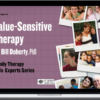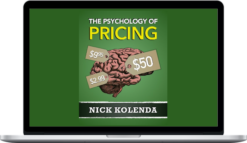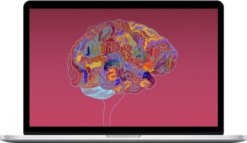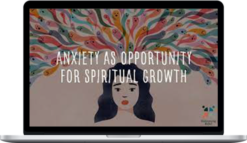NICABM – How To Apply Mindfulness To Your Clinical Work
$397.00 $22.00
»Delivery: Within 24hs
Description
NICABM – How To Apply Mindfulness To Your Clinical Work
How to Apply Mindfulness to Your Clinical Work Mindfulness works.
It can help clients reduce stress, optimize learning, and improve their relationships.
Not only that, promising research suggests that mindfulness may change the way we think and feel.
But knowing what mindfulness can do, and helping clients actually put it into practice often requires skill.
Mindfulness practice is simple but it isn’t always easy.
So we designed a program with this idea firmly in mind – and to give you expert perspectives and practical applications for working more adeptly with mindfulness . . .
. . . in nearly every clinical circumstance, no matter what objectives you’re working toward.
How to Apply Mindfulness to Your Clinical Work
How Mindfulness May Change Both the Brain and the Body
Daniel Siegel, MD
- Mindfulness and DNA: What Recent Research Says About the Potential Effect of Mindfulness on Chromosomes
- What It Means to Be Present and How It Creates Better Health and Happiness
- How to Turn a Mindful State Into a Mindful Trait
- Why What You Do With Your Mind May Change the Structure of Your Brain
- How Mindfulness Can Help Integrate the Brain
Mindfulness and the Gateways to Refuge: Finding the True Self
Tara Brach, PhD
- One Key Intervention That Practitioners Can Use to Help Clients Embody a Sense of Personal Authenticity
- How Mindfulness Can Help Us Minimize Reactivity
- Why False Refuges Look so Enticing
- Four Subtle False Refuges That Are Difficult to Recognize
- How to Find the Aliveness and Tenderness That Is in the Present Moment
- How the Sacred Art of Pausing Can Help Clients Break Unhealthy Patterns
- The Importance of Recognizing That Beliefs Are Real but Not True
- Why Mindfulness Is the Best Strategy for Coming Back to Wholeness
How to Grow Love and Compassion Out of Suffering
Jack Kornfield, PhD
- How Mindfulness Training Transforms Brokenness
- Why Over-Identifying with a Role Can Cause Tremendous Suffering
- How to Use Mindfulness and Loving Awareness to Become Free of the Past
- Thinking “Skillfully”: How to Apply Mindfulness to Solve Conflict
- Strategies for Overcoming Feelings of Unworthiness, Shame, and Guilt
- Why Bringing the Quality of “Beginner’s Mind” May Help You Improve Clinical Outcomes
Dialectical Behavior Therapy – A New Approach to Treating Distressing Emotions
Marsha Linehan, PhD
- Mindfulness Practices to Help Your Clients Tolerate Distress and Difficult Moments
- The Three Essential Skills of Dialectical Behavior Therapy
- Why Focusing on Change Can Be Ineffective in Treating Borderline Personality Disorder
- Why Dialectical Behavior Therapy Is So Effective in Combating Thoughts of Suicide
- Dialectical Behavior Therapy and Obesity – Treating the Behavior, Not the Biology
How to Help People Connect to Loving Awareness: Expanding Our Capacity to Give and Receive Unconditional Love
Ram Dass, PhD
- Why It Is so Difficult to Give and Receive Unconditional Love
- How Mindfulness Can Allow Us to Disassociate From “Roles” and Improve Healing
- Why Health Problems Can Sharpen Attunement
- How to Love Even the People You Dislike
- How to Help Patients Overcome the Fear of Growing Old
- Why Mindful Living Prepares Us for Dying
Deconstructing Death: How Mindfulness Can Help People Manage Life’s Ultimate Transition
Joan Halifax, PhD
- GRACE – Five Steps to Cultivate Compassion When Your Attention Is Divided
- Why Practitioners Need to Regulate Their Own Response to Suffering in Order to Help Their Patients
- An Exercise in Becoming Grounded: How to Prime Attention, Equanimity, and Strength
- Healing Fictions: What They Are and How They Structure Lives and Affect Treatment
- The Art of Sitting With Not Knowing
- How to Look Past Our Biases to Serve With Openness
About NICABM
We proudly provide continuing education for practitioners who are dedicated to being the best in their craft. Our goal is to develop programs that connect you with the top experts and the latest strategies in the field, to help you achieve better outcomes, more quickly with each of your clients.
About Ruth Buczynski, PhD
Dr. Ruth Buczynski is a licensed psychologist and founder and president of The National Institute for the Clinical Application of Behavioral Medicine (NICABM). NICABM helps physicians, nurses, psychologists, social workers, and counselors – practitioners who have some of the most significant and life-changing missions on the planet – provide cutting-edge, research-based treatment strategies to their patients. For more than 35 years, NICABM has offered accredited training and professional development programs to thousands of practitioners worldwide.
More courses from the same author: NICABM
Delivery Policy
When will I receive my course?
You will receive a link to download your course immediately or within 1 to 21 days. It depends on the product you buy, so please read the short description of the product carefully before making a purchase.
How is my course delivered?
We share courses through Google Drive, so once your order is complete, you'll receive an invitation to view the course in your email.
To avoid any delay in delivery, please provide a Google mail and enter your email address correctly in the Checkout Page.
In case you submit a wrong email address, please contact us to resend the course to the correct email.
How do I check status of my order?
Please log in to HealingCourse account then go to Order Page. You will find all your orders includes number, date, status and total price.
If the status is Processing: Your course is being uploaded. Please be patient and wait for us to complete your order. If your order has multiple courses and one of them has not been updated with the download link, the status of the order is also Processing.
If the status is Completed: Your course is ready for immediate download. Click "VIEW" to view details and download the course.
Where can I find my course?
Once your order is complete, a link to download the course will automatically be sent to your email.
You can also get the download link by logging into your HealingCourse account then going to Downloads Page.
Related products
Total sold: 3








